The industry has been slow out of the blocks on shrinking its carbon footprint, but leaders are showing the way forward, writes Mark Hillsdon
Perhaps one day all hotels will be built like Svart, a sustainable haven at the foot of the Svartisen glacier in Norway. Due to open in 2024, it is billed as “the world’s first energy-positive off-grid destination” and comes with an exceptional sustainability pedigree.
The circular hotel will sit on stilts above a fjord, explains Ivaylo Lefterov, Svart hotel’s managing director of hotel developments. Its roofscape will make the most of the long Scandinavian summer days, with solar panels harvesting enough energy to power the 94-room hotel, as well as the adjacent farm and fishery. Surplus energy will be fed back into the local grid, ultimately offsetting the energy need of construction.
Unless the consumer has a change of mindset, it doesn’t matter what we do
The hotel is part of the Six Senses brand, a long time, high-end leader in creating sustainable hotels, and will operate as a total circular economy, with technology that captures waste heat to create energy, and its own waste management and recycling facilities. Ninety percent of everything the hotel needs will come from within a 20-mile radius, explains Lefterov.
The company is also looking at ways to offset guests’ carbon emissions by investing in local environmental projects, and guests will also be given the opportunity to find out more about the importance of sustainability, says Lefterov.
“Unless the consumer has a change of mindset, it doesn’t matter what we do, we are never going to progress,” he says. Ultimately, he hopes that the ethos and the technologies at Svart will be seen as a blueprint for others to follow.
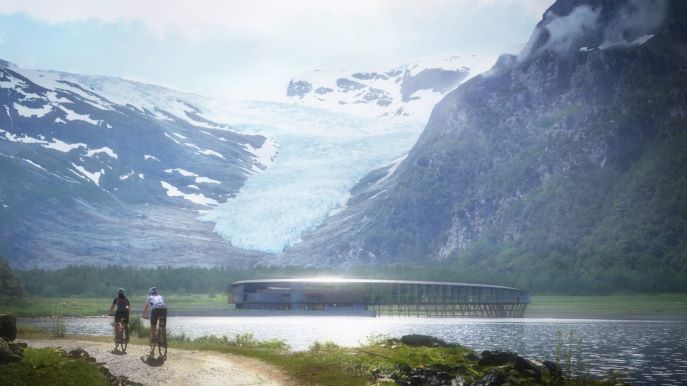
While tourism may have been slow out of the blocks when it comes to sustainability, there are now attempts to galvanise the sector into action. Last year’s COP26 climate conference in Scotland saw the launch of the Glasgow Declaration on Climate Action in Tourism, with the now familiar mantra of halving emissions by 2030 and reaching net zero by 2050.
More than 500 travel-related businesses have signed up to the World Tourism Organization (UWWTO) initiative, which is designed to accelerate climate action at every level of the industry, with the emphasis on collaboration between stakeholders. The declaration falls within the framework of the One Planet Sustainable Tourism Programme, and its goal is to increase sustainable consumption and production (SCP) in the sector.
As tourism grows, partly on the back of a post pandemic bounce, says Dr Dirk Glaesser, director for the sustainable development programme at the UNWTO, “we are aware of the needs of the tourism sector to transform significantly faster.
We are getting a lot of enquiries from people running hotels saying, ‘I don't even know where to start'
“(But) sustainability is a process, it is not just something you can certify,” he continues, which is why the non-competitive sharing of information and best practice, which has grown over recent years, is such an important part of tourism’s sustainability push.
Paloma Zapata, chief executive at Sustainable Travel International, agrees that when it comes to sustainability, travel and tourism is “late to the game”, but says things are starting to change. “There is a lot of pressure from all sorts of directions,” she says, including clients, employees, government regulations and investors, who want to see their money create more than just economic value.
Sustainable Travel International partners with hotels to help them recognise and address their impacts, explains Zapata. Bigger brands are already conscious of their sustainability obligations through accreditation schemes and the bigger ESG (environmental, social and governance) picture, she says, and while smaller luxury hotels may have a higher footprint, “they have the means to be able to innovate”.
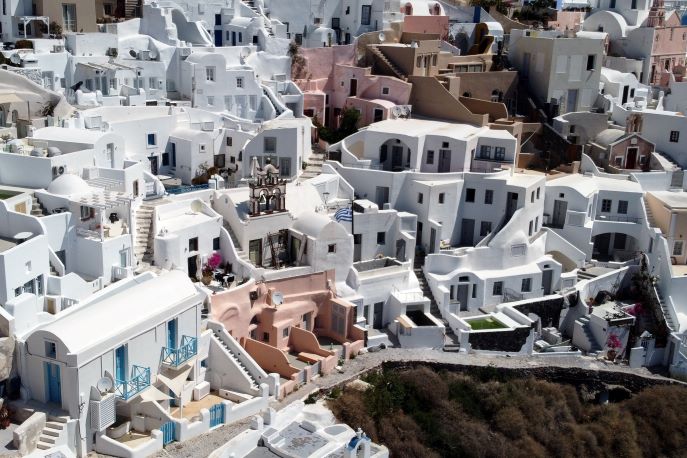
That leaves a large rump of medium-sized, often family-run, hotels in the middle, and it’s these properties that struggle taking the first step towards sustainability, she says. “We are getting a lot of enquiries from people running hotels saying, ‘I know I need to do something in sustainability, but I don't even know where to start’,” she explains.
This is the problem that the World Travel & Tourism Council (WTTC) has set out to solve with its Hotel Sustainability Basics initiative. Launched in April, it is based around a set of criteria that all hotels should implement as an absolute minimum, explains Christopher Imbsen, director of sustainability at the WTTC. The idea is that no hotel, however small, is left behind in the push to introduce sustainability, he says.
Although the programme takes three years to complete and involves 12 separate areas, the first eight actions have been designed to be relatively simple, the last four much harder. They include actions to measure and reduce energy, water, waste and carbon emissions, along with measures around reusing linen, using green cleaning products, and eliminating single-use plastic. So far, more than 50,000 hotels have signed up.
It's about getting ahead of the game. It's much more costly to react than be proactive
“These are criteria that everyone could and should be doing as a bare minimum,” says Imbsen. “These are the non-negotiables that can raise the level of sustainability within the whole industry.”
He expects more regulation to come in as governments set about meeting their own sustainability targets. “It's about getting ahead of the game. It's much more costly to react to these things than be proactive.”
The initiative is seen as a stepping-stone to more in-depth programmes such as the Sustainable Hospitality Alliance’s Pathways to Net Positive Hospitality, which takes a holistic view of environmental sustainability and is again focused on collaboration and sharing tools and resources. Based on industry insights and best practice, the pathway lays the sustainability journey out as four key stages with varying levels of ambition.
The alliance represents 25% of the global hotel industry by rooms. Claire Whitely, the organisation’s head of environment, believes that the sector “has woken up more to both the impacts that hotels can have on the environment but also the potential impacts that issues like climate change can have on them”.
Five key areas that the industry needs to address
1. Food waste
Addressing food waste is one of the industry’s most pressing priorities. Figures for the UK alone estimated that one in six hospitality meals are thrown away, yet as food waste breaks down it creates methane, a greenhouse gas 25 times more potent than CO2.
At Accor, the company is trialling artificial intelligence to analyse leftovers in two of its Netherlands’ hotels. The system weighs and scans what is thrown out by kitchen staff, allowing chefs to use the data to adapt menus and save food.
So far it has helped to reduce food waste by 25%.
The group also partners with Too Good To Go, an app that connects local people with restaurants offering their unused products at reduced prices. Over 900 of the group’s hotels had used the app to save more than 650,000 meals in 17 countries.
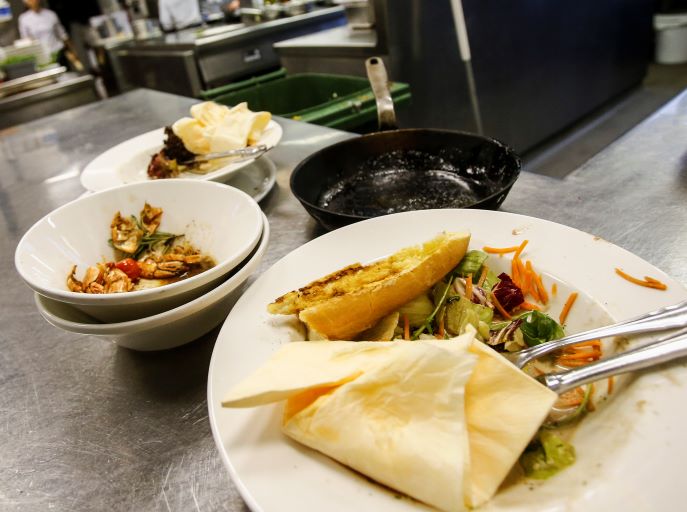
Several hotel brands have also worked with food waste specialists Winnow, including the Radisson Blu hotel in Dortmund, where they helped chefs make better decisions and minimise over-production. Over an initial period of 10 months, the hotel managed to reduce its food waste by 34%. Disappointingly, however, many of the projects carried out with the likes of Winnow rarely make it past the pilot or trial phase, showing a lack of ambition from the sector.
In the UK, as part of a goal to cut food waste in half by 2030, Premier Inns has partnered with food redistribution charity FareShare, diverting millions of tons of excess stock from landfill each year.
Elsewhere, working with WWF and the American Hotel & Lodging Association, Hyatt is producing food waste-prevention training materials, which it has made available as an open-source tool. Later in the year the UNWTO’s One Planet programme will launch a global food waste campaign for tourism that will look to advance thinking around circularity, as well as biodiversity protection.
2. Sustainable sourcing
Local sourcing and plant-based menus are among the ways in which hotels are cutting the impact of the food they serve. Soneva, which runs luxury resorts in Thailand and the Maldives, has removed beef from all its menus, cutting its environmental impacts by 7%, while an increasing number of hotels are offering vegetarian and vegan options. Between 35-40% of a typical Radisson menu is now meat-free, while Accor is partnering with the meat-alternative brand Zrou to bring more plant-based alternatives to its hotels.
Accor is also developing local sourcing programmes, and now has urban gardens at more than 1,150 of its hotels. The group is also trailing aquaponics, which uses less water, space and soil compared with traditional gardening, at two Singapore hotels, Swissotel The Stamford and Fairmont.
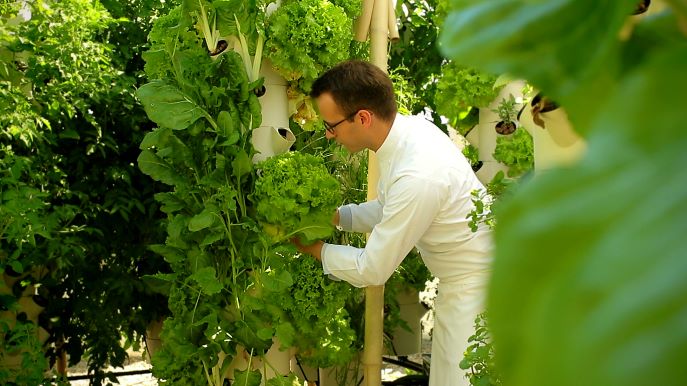
The brand also has a dedicated ocean strategy and reporting policy based on the Ocean Framework, which uses the international Ocean Approved label. The group has banned six endangered fish, as well as locally threatened species, from its menus and, where possible, ensures wild and farmed fish products are sourced from sustainable fisheries.
Whitbread, which owns Premier Inn in the UK, sources only cage-free eggs and Marine Stewardship certified (MSC) wild-caught fish. It is also a member of the Roundtable on Sustainable Palm Oil (RSPO), and, as the largest UK buyer of cotton after the NHS, is a member of the Better Cotton initiative, supporting 1,600 farmers in Pakistan in sustainable agriculture in partnership with CottonConnect.
3. Plastics
Waste plastic is a huge issue for the hotel sector, and with around 80% of tourism taking place in coastal areas, stopping plastic getting into the sea is a major challenge. For instance, marine litter in the Mediterranean increases by 40% during the peak tourist season.
At Radisson alone, changing to larger dispensers for soap and shampoo is set to remove 57 million miniature bottles from circulation, and eliminate the use of almost 500 tons of plastic a year. Linked to this, over 8,000 hotels, including several major chains, work with the charity Clean the World, which is recycling some of the estimated 3.3 million bars of soap used in hotels every day.

Another programme under the UNWTO’s One Planet Network is the Global Tourism Plastics Initiative. It requires organisations to make a set of commitments, which include eliminating problematic or unnecessary plastic packaging items by 2025, moving away from single-use plastic items and working with suppliers to ensure 100% of plastic packaging is reusable, recyclable or compostable.
In 2020, members including Club Med, The Hongkong and Shanghai Hotels, and Iberostar, eliminated more than 108 million plastic items and packaging, totalling over 800 tons.
While brands such as Accor have pledged to eliminate single-use plastics at hotels by the end of 2022, others such as Soneva were ahead of the curve, first banning plastic straws in 1998, with plastic bottles following suit 10 years later. Bathroom amenities are now provided in ceramic dispensers, too, while the next step is to eliminate plastic in the supply chain, and slash the use of Styrofoam boxes, which are a huge challenge in the Maldives, by 99%.
4. Water
Curbing water usage is one of the most critical issues for hotels. According to the Sustainable Hospitality Alliance, countries forecast with the highest water stress in the coming years are also amongst those with the greatest tourism growth "putting hotel companies at the forefront of current and future water challenges".
The Sustainable Hospitality Alliance has a free resource, the Hotel Water Measurement Initiative, providing a methodology for hotels to measure and communicate their water consumption. It is used by over 18,000 hotels globally.
The alliance says a hotel can use an average of 1,500 litres per room per day, which in some locations can be over eight times more water than that used by local people.
It is not uncommon for hotels in remote locations to develop their own water supply and using a mixture of reservoirs, deep boreholes and a process called reverse osmosis (RO), Soneva bottles its own water on site, and avoided using an estimated 2 million plastic bottles.
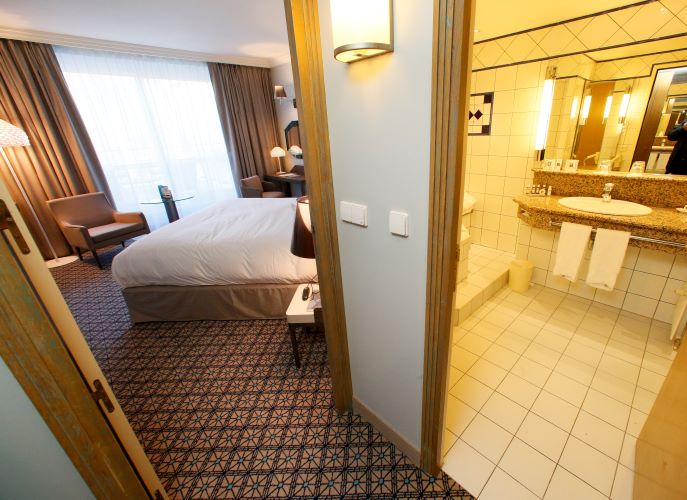
At the Radisson Blu Hotel Waterfront in Cape Town, the hotel’s fresh water now comes through its own desalination plant. A borehole sunk underneath the hotel allows it to harvest sea water, which is pumped through a reverse osmosis plant to keep the hotel's freshwater tank full, allowing it to operate completely separately from the municipal water supply.
The water management plan in Radisson Blu Resort Fiji Denarau Island involves the use of sustainable water supplies such as rainwater, storm water and treated wastewater. Dual flush toilets have been installed in bathrooms, while taps and shower heads are fitted with low-flow water inhibitors.
Nordic specialist Scandic has gone back to basics in its hotels, using stickers to remind guests that simply turning off the tap while they brush their teeth can save 25 litres of water per guest a day.
Water use is also a big contributor to a hotel’s carbon footprint, with that of a hotel with a golf course and spa as high as 125kg of CO2 equivalent per occupied room per night, compared with 5kg at an eco-hotel, according to Jason Long of travel management firm HRS. (See also Can business adopt a more sustainable flight-path post-Covid)
5. Energy
The hotel sector accounts for around 1% of global carbon emissions, with onsite energy use being the biggest single reason for the sector’s contribution to climate change.
Later this year, two Iberostar properties in Spain and Montenegro will become fully electric, with kitchens, heating systems and hot water boilers all switched from gas. This year will also see all the company’s Spanish properties moved to a renewable energy tariff.
Fifty-six properties in the Radisson portfolio now run on 100% renewable energy, while the group has also installed 500 electric vehicle charging stations. The Radisson RED Dubai Silicon Oasis hotel has received the LEED Platinum certification from the U.S. Green Building Council for its environmentally friendly building design. Sustainable highlights include solar panels for heating water, SMART hot water mixing, and occupancy and motion sensors to control lighting and temperature in guestrooms.
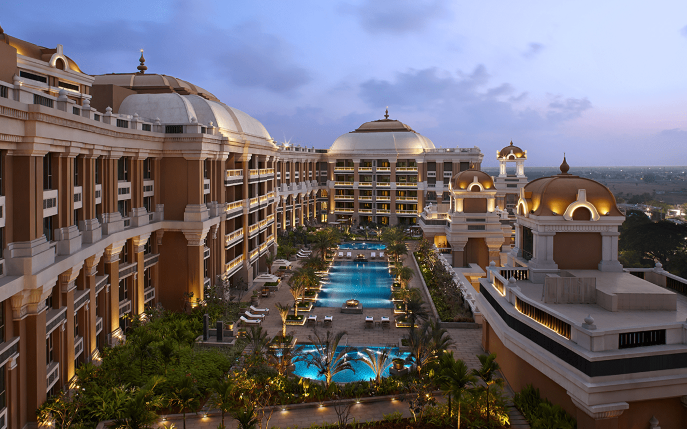
Another brand recognised by LEED is ITC Hotels, whose Grand Chola hotel, Chennai, has received Zero Carbon certification. The vast 600-room hotel officially has no carbon footprint, generating power through its own wind and solar farms, while using steam from its boilers to power laundry services. A process called atmospheric distillation also means that the hotel’s primary water source is the atmosphere.
Last year, IHG Hotels & Resorts (InterContinental) collaborated with design consultancy Arup, and energy management specialist Schneider Electric, to produce a report on how existing hotels can become net zero, mainly through reducing on-site energy consumption. With 80% of the buildings that will be standing in 2050 already in existence today, retrofitting of existing buildings has to be a key focus for the sector, the report said.
Among its recommendations were better controls and monitoring, improvements in building fabric to improve energy efficiency, upgrading of air conditioning, as well as onsite renewable energy generation.
Simon Gill, global lead of Arup’s hotels and leisure business, said in a forward to the report that hotel owners’ decision-making is typically influenced by factors like asset value and rentable income, rather than decarbonisation. Yet “there are signs that some institutional investors are divesting carbon intensive hotel assets as the likelihood of global carbon regulation mounts, creating uncertainty for long-lived carbon-intensive hotels.”
Mark Hillsdon is a Manchester-based freelance writer who writes on business and sustainability for The Ethical Corporation, The Guardian, and a range of nature-based titles including CountryFile and BBC Wildlife.
This article is part of the summer 2022 edition of The Ethical Corporation. See also:
An ambitious bid to bring ‘regenerative’ tourism to the Red Sea
The drive to turn tourism from a prime threat to saviour of global biodiversity
Ambition of ‘guilt-free’ travel through offsets faces rocky road
Can business adopt a more sustainable flight-path post-Covid?
What’s sustainable about soaring business jet use?
Tailwind growing behind tackling aviation emissions
Can the cruise industry power itself to a net zero future?
Hurtigruten sets course for zero-emissions cruising
Carbon emissions hotel sector World Tourism Organization One Planet Sustainable Tourism Programme World Travel & Tourism Council Hotel Sustainability Basics initiative food waste food sourcing beach plastics AccorHotels
